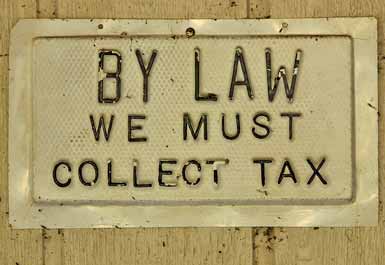The U.S. President Joe Biden’s visit to Ottawa this week has begun to place the spotlight on the mounting tensions over digital policy. For months, Canadian officials have not only been dismissive of the issue, but – as this week’s fishing expedition into Google and Facebook demonstrates – have not shied away from making the issue front and centre. I have been posting about trade-related risks with Canadian digital policy for months, noting that the risks are real and could result in billions in retaliatory tariffs that hits some of Canada’s most sensitive sectors. Indeed, this issue has been raised at every major meeting between senior trade officials for the past year. Is retaliation likely to happen? Certainly not immediately, but the longer the issues fester, the greater the impediment to advancing Canadian trade priorities. As Scottie Greenwood notes, “these are top-of-mind issues. They are not a small obscure issue.”

California Internet tax bill breakdown by Stephanie Robogeisha (CC BY-NC-SA 2.0) https://flic.kr/p/9YoqbP
Digital Tax
“Ongoing Concerns”: U.S. Objections to Canadian Digital Policies Spreads to the Senate
U.S. concerns with Canadian digital policy continues to mount with both the U.S. Administration and Senators from both parties raising fears of discrimination. U.S. pressure seems likely to grow as the issue emerges as a major irritant in the bi-lateral trade relationship with Canada’s most important trading partner. With U.S. President Joe Biden scheduled to visit Ottawa later this winter, it seems likely that digital policy – particularly a proposed digital services tax, Bill C-11, and Bill C-18 – will be on the agenda at the meeting.
The latest signals came last week at a bilateral meeting between U.S. and Canadian trade officials. The U.S. readout of the meeting states:
The Law Bytes Podcast, Episode 154: The House is Back – A Preview of Canadian Digital Policy as Parliament Resumes
The House of Commons and Senate return from a lengthy break this week and will likely run until late June with the occasional week or two off. Digital policy may not attract top line attention, but it has emerged as one of the government’s most active issues. This week’s Law Bytes podcast provides a preview of the upcoming session, looking at what may lie ahead for issues such as telecom policy, privacy reform, Bills C-11 and C-18, copyright, and trade policy.
The Law Bytes Podcast, Episode 115: Reuven Avi-Yonah on the Past, Present and Future of Digital Services Taxes
There has been mounting concern over the past few years over whether some of the world’s largest companies – primarily big tech – pay their fair share of taxes. This issue has arisen in countries around the world leading to new digital services taxes that primarily target the U.S. tech giants and which in turn often leads to the U.S. threatening to retaliate in response. Canada now finds itself embroiled in these battles as Finance Minister Chrystia Freeland has proposed a retroactive digital services tax to take effect in 2024 if by that time a newly reached OECD agreement has not taken effect. Professor Reuven Avi-Yonah is a law professor at the University of Michigan and director of the school’s international tax LLM program. He joins the Law Bytes podcast to discuss digital services taxes, the OECD deal, and what might happen if the international agreement falls apart.
Why the Digital Services Tax Act Violates Canada’s OECD Commitment to a Tax Moratorium
The Canadian government’s decision to move ahead with the Digital Services Tax Act, legislation that will take effect in 2024 should the international agreement at the OECD fail to materialize by that date, is problematic for reasons that extend beyond sparking a trade battle with the United States and potentially leading to billions in tariffs on Canadian goods and services. The plan also appears to violate Canada’s commitment at the OECD, in which all members agreed to a moratorium on introducing new digital services taxes.











